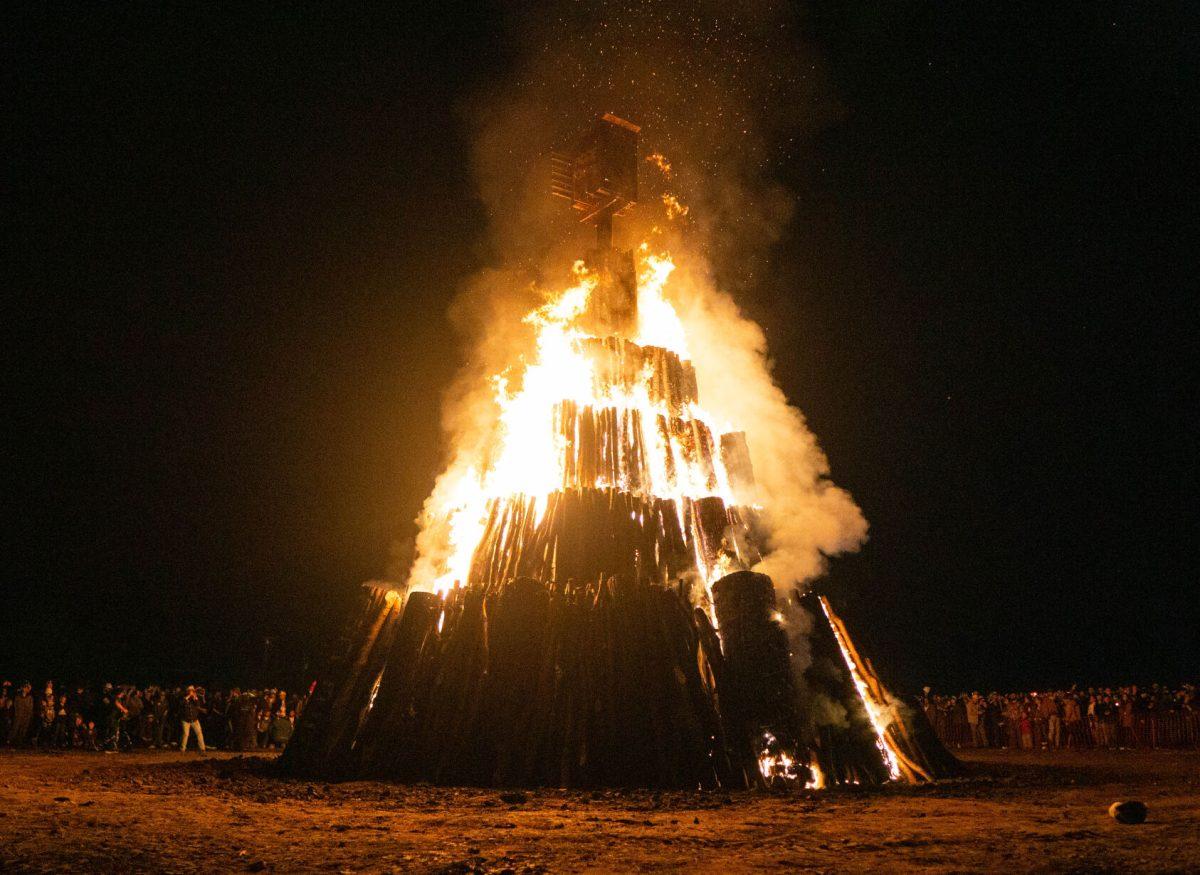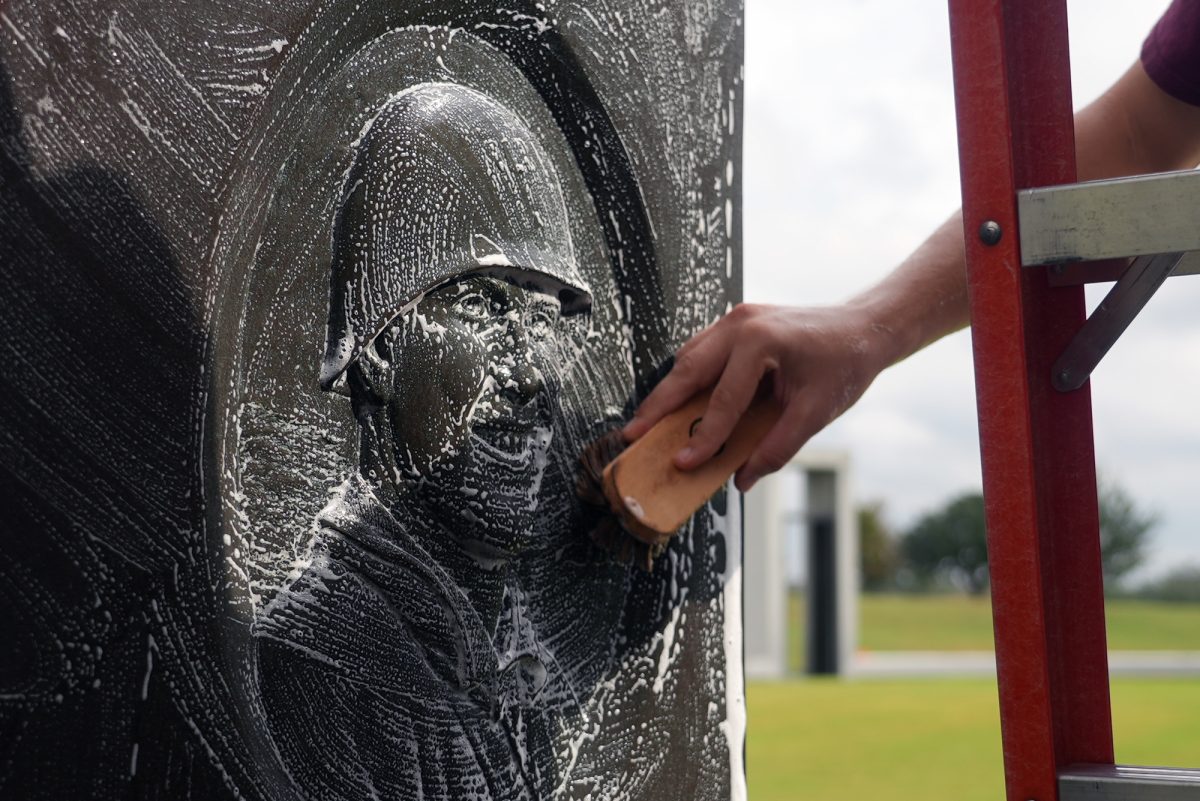Hundreds gathered in the Bethancourt Ballroom Thursday morning for the annual Dr. Martin Luther King Jr. breakfast, featuring activist Dr. Angela Y. Davis as its keynote speaker. The event, hosted with different speakers each January by the Woodson Black Awareness Committee, or WBAC, celebrates Dr. Martin Luther King Jr. Day as well as Black history and culture.
Attendance included students, faculty and community members of every age and background. While mostly centered around Davis, other people such as WBAC executives and Vice President General Joe Ramirez also spoke. One attendee, Dea Polk of the Texas A&M dual career office, has been going to the MLK breakfast for 15 years; she said hearing Davis was like seeing living history.
“It’s incredible to view how the past has propelled us to where we are now and also to motivate us to keep working,” Polk said. “We still have work to do.”
Dr. Angela Davis has been a political and social activist for over 60 years. She’s most well-known for opposing racial inequality, contemporary economic policies and the Vietnam War in her youth; when the FBI arrested Davis in 1970, widespread movement to free her began, including international committees, bail funds and supporting songs by the Rolling Stones and John Lennon. She’s since used that experience to advocate for prison reform in addition to her work in racial and gender politics.
“There’s so much knowledge that has been produced in prisons,” Davis said at the breakfast. “Therefore, we should be valuing the ideas that emerge.”
Dr. Rebecca Hankins, professor of Africana studies, global languages and cultures, moderated the event. As a lifelong fan of Davis — which included copying her signature afro when she was younger — Hankins said working with her Thursday was one of the most meaningful experiences of her career.
“This is truly an honor that will forever be in my memory,” Hankins said.
When answering Hankins’ questions, Davis emphasized how similar she believes past and present conflicts are. Her visit to Israel and Palestine, for instance, reminded her of the dynamics and tensions growing up in segregated Birmingham, Alabama. She also discussed the education system and her 50 years as a professor, mentioning themes like Black history, minority student organizations and censorship.
“When I first began teaching at the university level, there were no such programs as Black studies,” Davis said. “Every step forward allows us to see aspects of the struggle we weren’t aware of before.”
Carolyn Allen, Class of 1987, works in Faculty Affairs; she said the breakfast represented the best changes she’s seen at the university.
“It’s reflective of how far this campus has come,” Allen said. “I’ve been here 30 years, and there’s been a huge movement of being more vocal. Our campus is not only just a state campus; it’s a global campus. It’s reflective of our values and how they’ve been embraced.”
For Polk, it not only spoke to Black history but her personal history as well.
“There were a lot of Black sharecroppers in this area who had children that wanted to come to this school,” Polk said. “My father grew up right down the road and he couldn’t come to this school. He had to go to Prairie View. So his idea of A&M was a university where he couldn’t go even though his uncle worked at that university. It wasn’t that long ago.”
Throughout the conversation Thursday, Davis and the other speakers kept returning to King and his legacy. Davis’ 80th birthday is next week, which WBAC and the breakfast attendees celebrated with a chorus of “Happy Birthday,” so she took this moment to reflect on changes she’s witnessed in her lifetime and the people that created them.
“I say all this in the spirit of Dr. Martin Luther King — in the spirit of the resilience of the movement he represented,” Davis said. “I think the spirit of Dr. King is not the spirit of an individual. Every year it becomes increasingly important to emphasize we are celebrating the life of Dr. Martin Luther King not because of his greatness as an individual but because of the movement he symbolizes.”















